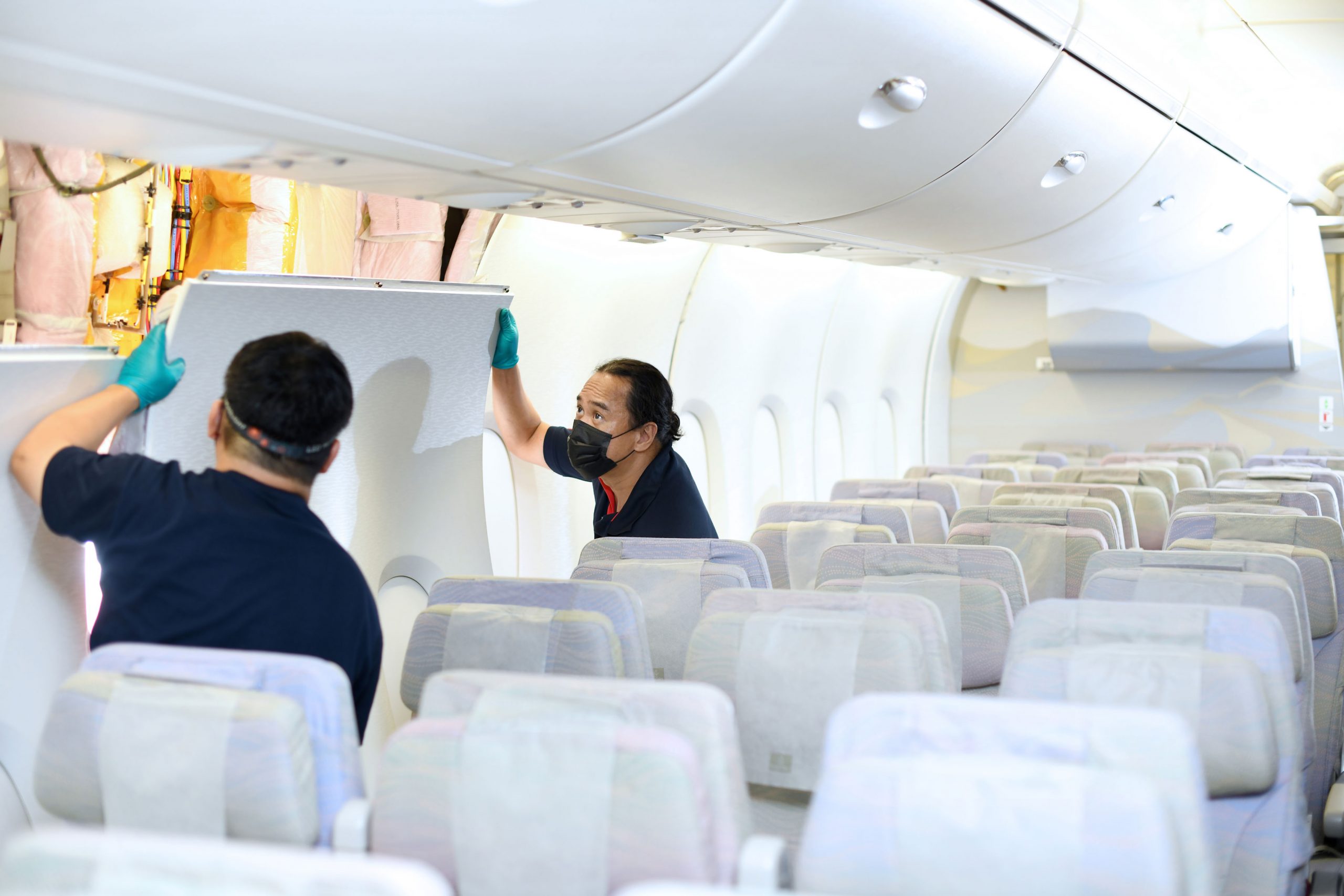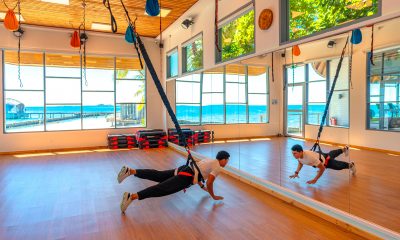International
What did eight weeks and $3 trillion buy the U.S. in the fight against coronavirus?

WASHINGTON (Reuters) – Unemployment checks are flowing, $490 billion has been shipped to small businesses, and the U.S. Federal Reserve has put about $2.5 trillion and counting behind domestic and global markets.
Fears of overwhelmed hospitals and millions of U.S. deaths from the new coronavirus have diminished, if not disappeared.
Yet two months into the United States’ fight against the most severe pandemic to arise in the age of globalization, neither the health nor the economic war has been won. Many analysts fear the country has at best fought back worst-case outcomes.
For every community where case loads are declining, other hotspots arise and fester; for states like Wisconsin where bars are open and crowded, there are others such as Maryland that remain under strict limits.
There is no universal, uniform testing plan to reveal what is happening to public health in any of those communities.
Between 1,000 and 2,000 people a day continue to die from the COVID-19 disease in the United States, and between 20,000 and 25,000 are identified as infected.
If there is consensus on any point, it is that the struggle toward normal social and economic life will take much more time, effort and money than at first thought. The risks of a years-long economic Depression have risen; fact-driven officials have become increasingly sober in their outlook; and the coming weeks and coming set of choices have emerged as critical to the future.
Faced with two distinct paths – a cavalier acceptance of the mass deaths that would be needed for “herd immunity” or the truly strict lockdown needed to extinguish the virus – “we are not on either route,” Harvard University economist James Stock, among the first to model the health and economic tradeoffs the country faces, said last week.
That means no clear end in sight to the economic and health pain.
“I am really concerned we are just going to hang out. We will have reopened across the board, not in a smart way … and we will have months and months of 15% or 20% unemployment,” Stock said. “It is hard to state how damaging that will be.”
Taking stock
Treasury Secretary Steven Mnuchin and Fed chair Jerome Powell will appear via a remote internet feed before the Senate Banking committee on Tuesday to provide the first quarterly update on implementation of the CARES Act, which along with a follow up bill formed the signature $2.9 trillion legislative response to the pandemic.
They will likely face detailed questions about their efforts after a rocky few months. The Paycheck Protection Program in particular was originally overwhelmed with applicants and criticized for hundreds of loans doled here out to publicly traded companies.
Yet, now two months in, a replenished program still has $120 billion in funding available – money on the table that analysts at TD Securities suggest people have refused to pick up because of confusion about the terms.
The hearing is also likely to be a platform for Democrats to coax Mnuchin and Powell toward acknowledging that more must be done – Powell said so directly in an appearance last week – and for Republicans arguing against quick new action.
Death projections down, testing up
The lockdowns and money have had an impact on the disease’s spread, as the postponement of sporting events and other mass gatherings, and restaurant and store closings curbed the spread of a virus that some early estimates saw killing as many as 2 million Americans.
Deaths as of Saturday stood at around 87,000 and are expected to pass 135,000 by early August.
After federal government missteps and delays, testing has ramped up to 1.5 to 2 million tests a day, still less than half what health experts say the country needs.
Strict lockdowns slowed the rate of infection in the hardest-hit areas, “flattening the curve” so hospitals could retrain nurses, cobble together donations of personal protective equipment such masks, gloves and gowns, and were spared from the direst predictions about intensive care shortages.
However, the fight against the coronavirus may still be in its initial stages in more than a dozen U.S. states, where case numbers continue to rise.
And community agencies are noting increases in cases of domestic violence and suicide attempts after weeks of home confinement.
Trillions more spending ahead?
At its passage in late March the CARES Act was regarded as a major and perhaps sufficient prop to get the U.S. economy through a dilemma.
Fighting the spread of the virus came with a massive economic hit as stores closed, transportation networks scaled back, and tens of millions of people lost jobs or revenue at their businesses. (See a graphic here of the economic fallout.)
Facing a decline not seen since the Great Depression of the 1930s, the main goal of the bill was to replace that lost income with checks to individuals and loans to small businesses that are designed to be forgiven.
JPMorgan economist Michael Feroli estimated recently that the loans and transfer payments under the act turned what would have been an annualized blow to income of nearly 60% from April through June into an annualized decline of 15% – sharp, but far more manageable.
GDP in the second quarter, however, will drop 40% on an annualized basis. The budget deficit this fiscal year is expected to nearly quadruple here to $3.7 trillion.
Some of the deadlines in the CARES Act are approaching. The small business loans were meant to cover eight weeks of payroll, a period that has already lapsed for companies that closed in mid-March, when President Trump issued a national emergency declaration. The enhanced $600 per week unemployment benefit expires at the end of July.
The House on Friday passed a new here $3 trillion CARES Act to replenish some funding, but it is unclear whether the Republican-led Senate will take it up.
Weeks after a V-shaped economic recovery was predicted in March, most economists and health officials have a darker message.
“It is quite possible this thing will stay at how ever many deaths it is a day indefinitely, just wobbling up and down a little bit as epidemics move to different places around the country,” said economist and Princeton University professor Angus Deaton.
“The sort of social distancing we are prepared to put up with is not going to do very much.”
Content and photos: Reuters
International
Nika Zorjan’s ‘V Postelji’ music video showcases timeless beauty of Maldives

Released just three weeks ago, Nika Zorjan’s latest music video, ‘V Postelji’ (meaning “In Bed”), has captivated audiences with its stunning cinematography set against the breathtaking backdrop of the Maldives. Directed by videographer Niko Karo, who accompanied Nika to film the video, the project was organised by Moji Maldivi, an agency based in Slovenia dedicated to promoting the Maldives as a premier holiday destination in Balkan region.
The video beautifully captures Nika strolling through serene pathways shaded by iconic coconut palm trees at Villa Park, later walking along the sun-kissed beaches of Villa Nautica, and finally enjoying the golden sunset on a bed at the beach of Furaveri Maldives. Each scene showcases the natural beauty and tranquil ambiance of the Maldives, enhancing the emotional depth and visual splendour of the music video.
Nika Zorjan, renowned as a Slovenian pop star and Eurovision contestant, has also gained fame for her cover songs, including her most popular rendition of Sia’s Cheap Thrills, which has amassed nearly 50 million views on YouTube, with over 60 million total views on the platform. “Shooting a video in the Maldives is heavenly,” she added. Filmed in one of the world’s most captivating tourist destinations, the Maldives serves as more than just a scenic backdrop; it becomes an integral part of the video’s narrative.
V Postelji not only showcases Nika Zorjan’s musical prowess but also pays homage to the Maldives’ timeless allure and cultural richness. The video has resonated deeply with audiences, garnering praise for its artistic vision and the mesmerising beauty of the Maldivian landscape. The lush greenery, crystal-clear waters, and pristine beaches depicted in the video create a sense of paradise that complements the song’s evocative lyrics.
As viewers continue to immerse themselves in the captivating visuals and emotive melodies of V Postelji, it reinforces the Maldives’ reputation as a destination where natural beauty and tranquility converge effortlessly. Nika Zorjan’s collaboration with Niko Karo underscores their shared appreciation for the Maldives’ serene ambiance and its ability to inspire creativity and emotional expression. This partnership, facilitated by Moji Maldivi, highlights the agency’s dedication to showcasing the Maldives as an unparalleled holiday destination to the Balkan market.
Featured
Emirates undertakes largest known fleet retrofit project

Emirates has kick-started its plans to upgrade the entire interior cabins of 120 Airbus A380 and Boeing 777 aircraft – two of the largest commercial aircraft types in service today.
This ambitious project, representing a multi-billion dollar investment to ensure Emirates’ customers “fly better” for the coming years, officially commences in November and is managed entirely by Emirates’ Engineering team.
The target is to completely retrofit four Emirates aircraft from start to finish every month, continuously for over 2 years. Once the 67 earmarked A380s are refreshed and back in service, 53 777s will undergo their facelift. This will see nearly 4,000 brand new Premium Economy seats installed, 728 First Class suites refurbished and over 5,000 Business Class seats upgraded to a new style and design when the project is complete in April 2025.
In addition, carpets and stairs will be upgraded, and cabin interior panels refreshed with new tones and design motifs including the iconic ghaf trees which are native to the UAE.

No other airline has handled a retrofit of this magnitude in-house, and there’s no blueprint for such an undertaking. Therefore Emirates Engineering teams have been planning and testing extensively, to establish and streamline processes, and identify and address any possible snags.
Trials began on an A380 in July, where experienced engineers literally took each cabin apart piece-by-piece and logged every step. From removing seats and panelling to bolts and screws, every action was tested, timed and mapped out. Potential impediments to completing the installation of Emirates’ new Premium Economy Class or the retrofit of the remaining three cabins in just 16 days were flagged and documented for expert teams to review and address.
As part of the programme, new purpose-built workshops will be set up at Emirates Engineering to repaint, re-trim and re-upholster Business and Economy Class seats with new covers and cushioning. First Class suites will be carefully disassembled and sent to a specialised company to replace the leather, arm rests and other materials.
From the trials, Engineers discovered several unexpected solutions for instance: that existing food catering trucks could be easily repurposed to move parts destined for refurbishment from the aircraft to the workshop for their refresh, as these vehicles had doors of the right width and offer sufficient space.
Until the retrofit programme starts in earnest in November, a cross-disciplinary team has been assembled to regularly review the planning process, address any issues, and track updates on various aspects of the project such as procurement, staffing, and training.
Emirates’ new Premium Economy cabin class, which offers luxurious seats, more legroom, and a service to rival many airlines’ business offering, is currently available to Emirates customers travelling on popular A380 routes to London, Paris, Sydney. More customers will be able to experience the airline’s new Premium Economy cabins starting from year end, as the retrofit programme picks up momentum.
Featured
Eleanor helps over 30 Maldives hotels elevate guest services

Eleanor has been named as one of the top 10 concierge software providers globally.
Based on accurate, timely reviews from real users, the HotelTechAwards rank the world’s best hotel software firms and products and it also provides hoteliers direct access to a growing network of hotel technology professionals and decision-makers.
“The guest experience is the cornerstone of our platform. Our unified resort wide solution, Eleanor, has been built for resorts off the back of many years working in the industry and addresses the needs of both Sales and Marketing departments and perhaps just as importantly, the operational requirements of the team on the ground at the property. The days of resorts working with disjointed systems are now behind us,” says Darren Caple, co-founder and CEO.
“We are on a mission to make the guest’s resort experience as easy and as frictionless as possible. Whereas traditional providers in the market have come at this purely from a guest communication perspective, our background in resorts has allowed us to combine this basic requirement with the streamlining of operational processes. The result is truly a resort wide solution that removes the need for countless different systems to be deployed.
Eleanor allows resorts to deliver consistent, superior service levels to guests across all stages of their journey with contactless features helping to alleviate sensitive touch-points in the post pandemic period. More than 30 properties in the Maldives use our Eleanor platform to help butlers and guest services elevate the guest experience. These properties are seeing an increase in incremental revenue by over 30% and operational efficiencies of 600+ man hours per month. We are also beginning to roll out the platform in some Caribbean properties!”
Eleanor is making waves in the hospitality industry by pushing the conventional limits of what a resort guest app can achieve through its unique ability to facilitate direct bookings for services and activities. The traditional ‘request to book’ feature that is common amongst almost all other hotel apps is removed by a power booking and operational platform sitting at the heart of the solution that covers all the resorts’ departments. It’s this module which realises enormous operational benefits and insights for the resort.
“We, at Eleanor, are humbled and honoured that our clients have provided such positive reviews. Feedback from our clients, partners and hoteliers are incredibly valuable for us and we will continue to improve our offering and services”, said Caple.
To celebrate this success, Eleanor is currently offering resorts a free one month trial, together with free setup and training and discounted monthly fees.
Eleanor, founded in 2018 and has its headquarters in the United Kingdom. Created from over 15 years of hands-on expertise, Eleanor allows resorts to deliver consistent, superior service levels to its guests across all stages of their journey with contactless features helping to alleviate sensitive touch-points in the post pandemic period. Eleanor also helps to unlock operational efficiencies and boost incremental revenue and guest loyalty.
Hotel Tech Report’s Best Concierge Software 2022 Runner Up, reviewed as a preferred and reliable hotel software product by the global hotelier community.
For more information, visit www.eleanorapp.com.
-

 Cooking1 week ago
Cooking1 week agoA spring of flavours: Nowruz dining series at JW Marriott Maldives Resort & Spa
-

 News1 week ago
News1 week agoPulse Hotels & Resorts unveils Aura Maldives, a mindful luxury sanctuary
-

 News1 week ago
News1 week agoSun Siyam Iru Fushi sets new nenchmark with 24 Hour Premium All Inclusive Dine Around
-

 Fitness1 week ago
Fitness1 week agoOUTRIGGER Maldives Maafushivaru launches expanded wellness programming for 2026
-

 Action1 week ago
Action1 week agoSheraton Maldives Full Moon celebrates sixth anniversary of Reefscapers collaboration
-

 Featured1 week ago
Featured1 week agoYou & Me Maldives unveils curated Premium All Inclusive programme
-

 Awards7 days ago
Awards7 days agoCentara Mirage Lagoon Maldives named Luxury Family Friendly Resort of the Year
-

 Cooking1 week ago
Cooking1 week agoPatina Maldives hosts Chef Shannon Bennett for exclusive April residency








